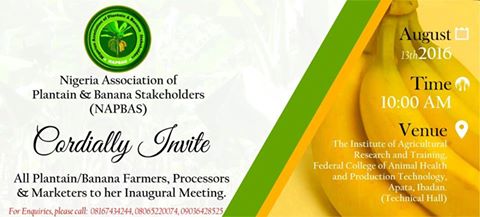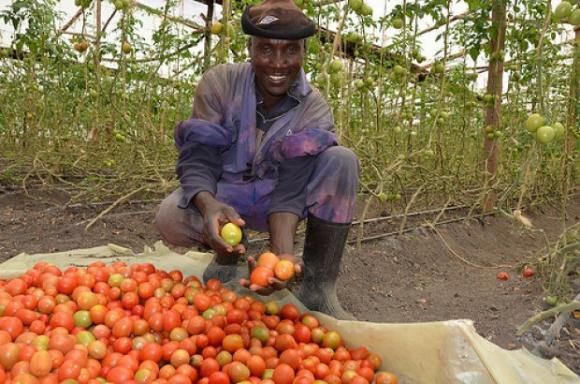
According to Wikipedia (2006) a developing society is one with relatively low standard of living, undeveloped industrial base and moderate to low human development index (HDI)
Chassy (2003) reported that 800 – 850 million people are malnourished, more than 200million of these are children, many of whom will never reach their full intellectual and physical potential, another 1-1.5 billion humans have only marginally better access to food and often do not consume balanced diet containing sufficient quantities of all required nutrients and majority of this nutritionally at risk population live in developing countries and this number will grow as human population growth is ever on the increase. The question now is how will Agriculture carter for this pending problem of food shortage and the expected increase in nutritionally at risk people while maintaining a healthy environment and biodiversity? Will it be by expanding cultivated land area? Or by increasing the use of inputs? How friendly are these practices to the environment? It can only be achieved through crop and livestock improvements (Biotechnology) as stated by an international conference of experts convened World by the Bank, United Nations Development Programme (UNDP) and the food and agriculture organization (FAO) in 1992.
Biotechnology has prospects to remedy the problem of food shortage as research in this field aims to develop plant varieties that provide reliable high yield, at the same or lower costs by breeding in qualities such as resistance to diseases, pest and stress factors which will contribute gainfully to food production while maintaining a healthy environment by reducing the amount of fertilizer, pesticides, herbicides used in farming. These shows clearly that biotechnology seeks to improve Agricultural practices by making it cost effective, increase productivity and bridging other gaps which pose serious challenges to Agriculture. These gains will lead to capacity building, create numerous jobs, and reduce poverty as well as ending malnutrition. Annon (2002) reported that the United Nations Economic and Social commission for western Asia Cooperation with International Labour Organization (ILO) sought to identify the best approach for regional capacity building in new technology to improve employment rate, sustainable development and poverty alleviation in developing Arab Nations came to a conclusion that identifying new technologies, adopting, regulating and implementing them will serve the purpose for national economic and social development. In the report, it was emphasized that countries that adopt a better approach to the four novel technologies of biotechnology, genetic engineering, biomaterials and informatics will develop a better capacity for economic and social development than their counterparts.
It becomes very pertinent in this era of dwindling oil prices and mass unemployment that Nigeria incorporates biotechnology into its agricultural programme as the Present administration seeks to savor the economy by diversifying it to Agriculture which promises to be the best substitute. It should however be noted that for Agriculture to be worthwhile, appropriate technologies (Biotechnology) must be employed rather than relying on the very crude techniques that will not carter for the present day challenges posed to Agriculture e.g. Climate change, erosion and leaching of farm lands, arid and unfertile lands etc.
LIMITATIONS/PUBLIC PERCEPTION
It is obvious that to meet the food demand in a developing economy like ours using a novel technology like biotechnology requires meeting a number of social, political, economic and technical challenges.
We are thankful to the Nigerian Government for passing the biosafety bill into law, establishing the National Biosafety Management Agency; however we still experience a major problem of social acceptability, which I know is a misconception a majority of the Nigerian populace holds about biotechnology and GM products. In a survey carried out in my 4thyear in 2012, it showed that 85% of Nigerians don’t know what biotechnology entails but have their own personal philosophies in the best ways it appeals to their knowledge, and their knowledge is only associated with the negatives of biotechnology . It should however be stressed that biotechnology is a household name for everything that has to do with manipulation of living things ranging from the very simple process of alcohol fermentation to cloning of plants and animals. It should also be known that genetic engineering; transgenic organisms are quite different from cloning and cloned organisms. It should also be known that they is no innovation that lacks disadvantages, just like cars, airplanes, electricity had their advantages and disadvantages so also is biotechnology. Owing to the fact that the advantages of this innovations outweighs the disadvantages, policies, regulatory bodies are constituted to regulate this innovation within the confines of its advantages while on the other hand greatly reducing the disadvantages, this is no exception with biotechnology as the National Biotechnology Management Agency (NBMA) was constituted to regulate the activities of biotechnology, and they will deliver on this core objective. In criticizing biotechnology and its products, we should offer a hard-look rather than our personal philosophies as the problem of social acceptance is a major setback to the proliferation of this technology in Nigeria.
The economic and technical issues relate to funding of biotechnology researches, infrastructure for researches and manpower to put this technology into practice, since it is novel and the practice within the country is small scale. This however have discouraged individuals from venturing into this field of study as it is assumed to have very grim opportunities for its graduates and practitioners, but we have faith owing to the importance attached to this discipline that our well-meaning, experienced and exposed leaders will tap into the potentials of this discipline providing funding which will result in the training of personnel to adequately fit into this field.
CONCLUSION
Agricultural biotechnology will be a major part of the solution to the problem of increasing food demand while at the same time conserving biodiversity. It has been shown to improve yield around the world especially in developing countries and this increased yield will spare land for natural ecosystems to co-exist with agro ecosystems, improve GDP, generate income, create employments and consequently greatly reduce poverty and malnutrition which is the bane of developing countries. We implore Nigeria to join other developing and developed nations who have resorted to biotechnology on the basis of their needs and empirical based reports on biotechnology products by open minded, well-meaning scientist rather than taking queues behind developed countries who don’t have the need we have, who don’t suffer what we suffer, who have adopted the technology with respect to their own needs and claim the entire technology is not safe. We therefore call on individuals, opinion leaders, students, policy makers, authorities in the agriculture sector, private sector, sister and supporting MDAs like the ministry of information, national orientation agency, ministry of science and technology, ministry of finance, ministry of environment to partner with the National Biotechnology development agency to achieve its objectives of promoting and implementing evidence based science and technology of which agricultural biotechnology is cardinal.
You can read the part one here
Written by Opuah Abiekwen(abeikwen@yahoo.com) Graduate of Biotechnology and Genetics, University of Calabar



 I wrote this article for the 2016 International Youth Day and it was first published on
I wrote this article for the 2016 International Youth Day and it was first published on 
 Dates: 17 – 21 October 2016 | Venue: Century City Conference Centre, Cape Town, South Africa
Dates: 17 – 21 October 2016 | Venue: Century City Conference Centre, Cape Town, South Africa



